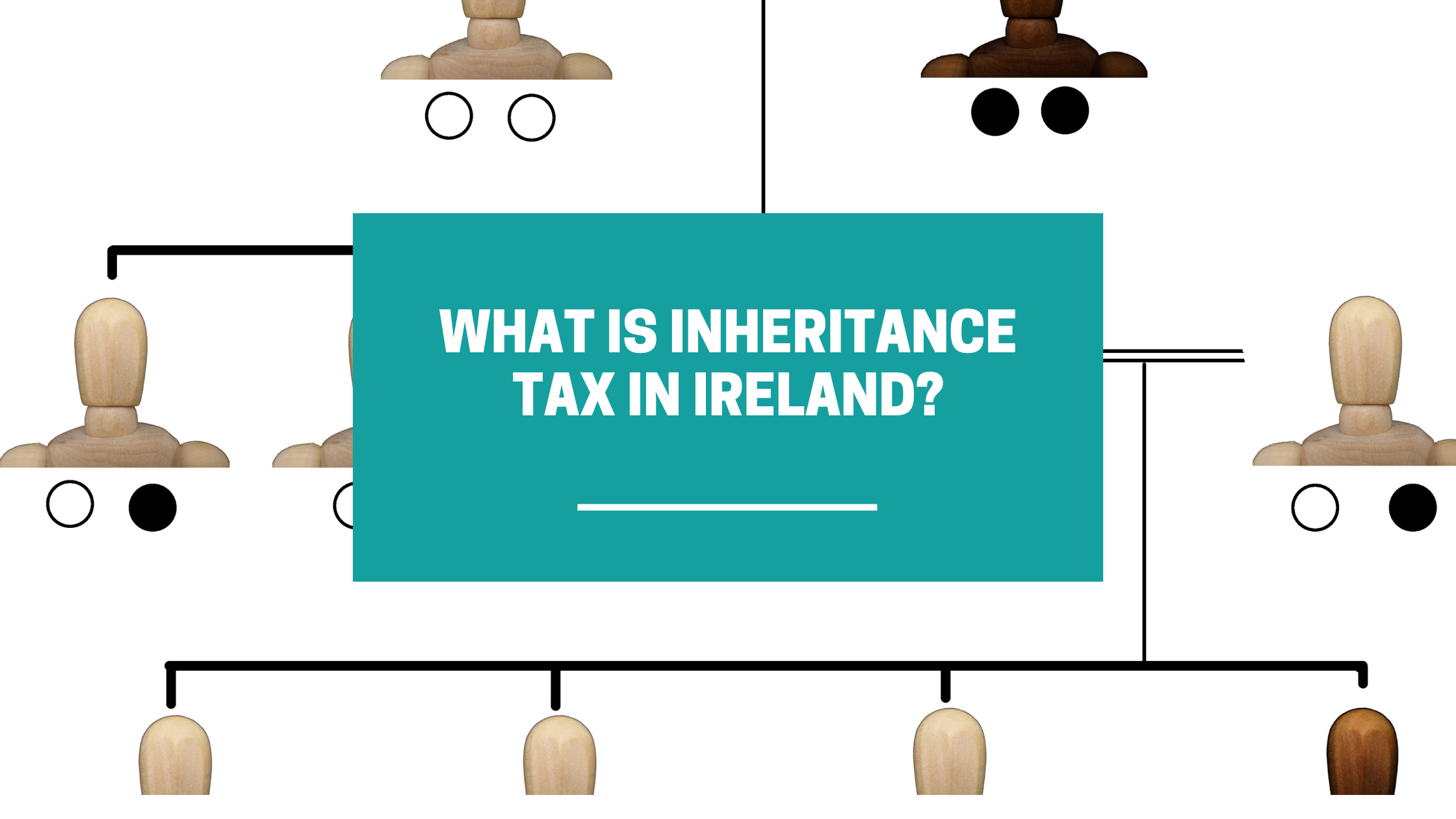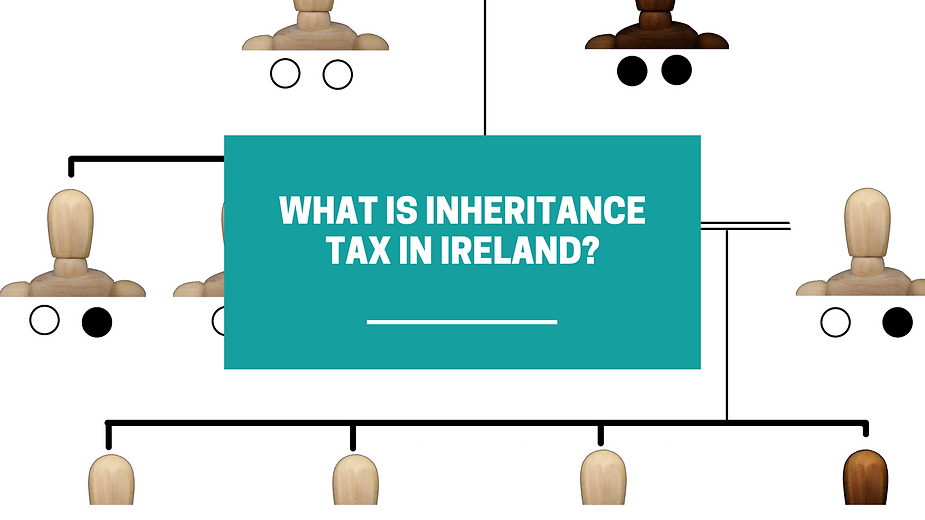What is an inheritance tax in Ireland?

In Ireland, Inheritance Tax is referred to as Capital Acquisitions Tax (“CAT”), which is tax that is levied on the transfer of assets from deceased person to their chosen beneficiary. Back in 1970’s a Finance Act 1975 was introduced which in turn introduced concept of gift tax. At the time, tax rate was 40% and tax- free threshold was only €5,000. Over time thresholds have been revised many times and current rate is 33% and highest threshold is €335,000. The tax levy is depended on relationship between deceased and beneficiary and Revenue has divided these relationships into three categories, which are: – Group A: This group has lifetime threshold of €335,000 and individuals who fall within this group are children of the deceased, parents and spouses. Group B: Has lifetime threshold of €32,250.00 and individuals who fall within this group are siblings, nieces, nephews, grandparents and grandchildren. Group C: Has a lifetime threshold of €16,250.00 and individuals who fall within this group are anyone else such as friends and remote relatives. The way CAT works is where a gift or inheritance value is above tax- free threshold, then CAT is payable on the amount above the allowable threshold. CAT is charge at a rate of 33%. There are certain exemptions where CAT would not be payable or would be payable, but at a reduced amount. Some of these cases are such as: – Dwelling House Exemption This is where beneficiary received a gift or inheritance of qualifying dwelling house. Condition to apply for this exemption is that beneficiary should occupy the house as their main residence for 6 years after receiving this gift. 2. Agricultural Relief This is gifts and inheritances of agricultural property. Relief provides for a reduction of taxable value of the property by 90%. 3.Business Relief Exemptions on gifts or inheritances of business assets. Provides for reduction in taxable value of the property by 90%. 4.Charity Exemption Any gifts made to charities are exempt from CAT. It is important to note that there are valid reasons as to why CAT Tax exists these are such as: A.To promote greater equality in the society. Inheritance tax is a progressive tax, which means tax increases with the market value of the gift. This simply means that those who receive larger gifts pay larger amounts of tax, and so this helps to re-distribute wealth and reduce income and wealth inequality in the society. B.Prevention of concentration of wealth in a small number of families which in turn encourages that people are more charitable in distributing their estate. C.Lastly, it is an important source of revenue for the government. However, when putting in a will in place it is important to consider tax implications, and you should consider your Will from a tax perspective. Tax is often seen by individuals as form of double taxation, because assets subject to this tax most often have already been taxed during deceased’s persons lifetime and may be seen quite unfair, because the assets are being taxed twice. Inheritance tax can also be seen as unequal burden of different individuals and families. It can be seen as targeting wealthier families. However, it is important to note hat many individuals understand and support the need for distribution of wealth fairly across the society. Please note we are not tax advisors and the above figures are factual information from Revenue. We can recommend a good tax advisor should you require same.
What is an inheritance tax in Ireland?

In Ireland, Inheritance Tax is referred to as Capital Acquisitions Tax (“CAT”), which is tax that is levied on the transfer of assets from deceased person to their chosen beneficiary. Back in 1970’s a Finance Act 1975 was introduced which in turn introduced concept of gift tax. At the time, tax rate was 40% and tax- free threshold was only €5,000. Over time thresholds have been revised many times and current rate is 33% and highest threshold is €335,000. The tax levy is depended on relationship between deceased and beneficiary and Revenue has divided these relationships into three categories, which are: – Group A: This group has lifetime threshold of €335,000 and individuals who fall within this group are children of the deceased, parents and spouses. Group B: Has lifetime threshold of €32,250.00 and individuals who fall within this group are siblings, nieces, nephews, grandparents and grandchildren. Group C: Has a lifetime threshold of €16,250.00 and individuals who fall within this group are anyone else such as friends and remote relatives. The way CAT works is where a gift or inheritance value is above tax- free threshold, then CAT is payable on the amount above the allowable threshold. CAT is charge at a rate of 33%. There are certain exemptions where CAT would not be payable or would be payable, but at a reduced amount. Some of these cases are such as: – 1. Dwelling House Exemption This is where beneficiary received a gift or inheritance of qualifying dwelling house. Condition to apply for this exemption is that beneficiary should occupy the house as their main residence for 6 years after receiving this gift. 2. Agricultural Relief This is gifts and inheritances of agricultural property. Relief provides for a reduction of taxable value of the property by 90%. 3. Business Relief Exemptions on gifts or inheritances of business assets. Provides for reduction in taxable value of the property by 90%. 4. Charity Exemption Any gifts made to charities are exempt from CAT. It is important to note that there are valid reasons as to why CAT Tax exists these are such as: A. To promote greater equality in the society. Inheritance tax is a progressive tax, which means tax increases with the market value of the gift. This simply means that those who receive larger gifts pay larger amounts of tax, and so this helps to re-distribute wealth and reduce income and wealth inequality in the society. B. Prevention of concentration of wealth in a small number of families which in turn encourages that people are more charitable in distributing their estate. C. Lastly, it is an important source of revenue for the government. However, when putting in a will in place it is important to consider tax implications, and you should consider your Will from a tax perspective. Tax is often seen by individuals as form of double taxation, because assets subject to this tax most often have already been taxed during deceased’s persons lifetime and may be seen quite unfair, because the assets are being taxed twice. Inheritance tax can also be seen as unequal burden of different individuals and families. It can be seen as targeting wealthier families. However, it is important to note hat many individuals understand and support the need for distribution of wealth fairly across the society. Please note we are not tax advisors and the above figures are factual information from Revenue. We can recommend a good tax advisor should you require same.
